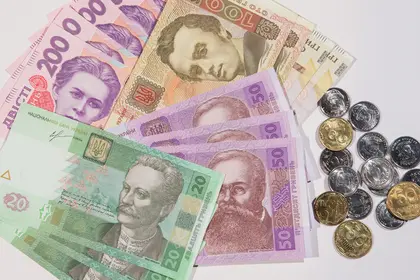ICU Weekly Insight, Jan. 10, 2022
Bonds: Active budget borrowings could be behind us
JOIN US ON TELEGRAM
Follow our coverage of the war on the @Kyivpost_official.
At the end of 2021, the Ministry of Finance increased borrowings through the domestic bond market, but the beginning of the year will be less active with smaller borrowings than last month.
In December, the MoF raised almost Hr 63bn from primary bond auctions. The amount raised in the auction held on Dec. 21 was a record high last year, and a total of Hr 390bn was raised by the MoF last year. In local currency, net borrowings (or financing of budget deficit) amounted to Hr 61bn. But in hard currency, the MoF was not able to refinance all FX-denominated domestic redemptions in full. Borrowings were the equivalent of HR 109bn when full-year principal repayments amounted to Hr 122bn.
The increase in borrowings and acceleration in budget deficit financing was facilitated by the offering of short-term bills and raising interest rates on Hr-denominated paper.
In total, domestic bonds outstanding were up by Hr 62bn last year, including Hr 48bn increase in December. Only the NBU decreased its portfolio by Hr 12bn last year, while all other groups of investors increased their portfolios. Banks increased portfolio by Hr 27.6bn and non-banking institutions by Hr 25.2bn. Individuals more than doubled their portfolio adding Hr 14bn in local-currency bonds. The share of Hr-denominated bonds in the total bond portfolio of individuals thus increased to 47% from 33% at the beginning of the last year.
Foreign investors increased their holdings of bonds in 1H21 and decreased their presence in the market and exposure in 2H21. Therefore, last year their portfolio rose by only Hr 7.4bn to Hr 92.6bn or stood at 8.6% in total domestic bonds outstanding at the end of 2021.
ICU view: Although the Ministry of Finance plans to offer short-term bills in January, large borrowings should not be expected as most of redemptions scheduled for January were already paid last week. The Ministry of Finance will not offer FX-denominated bills this week and plans hard-currency borrowings next week to refinance redemptions in US dollars scheduled for this Wednesday.
FX: Hryvnia weakens as liquidity flows in
VAT refunds and local-currency debt redemptions partially in favour of foreign investors increased demand-side pressures in the FX market and weakened the hryvnia exchange rate. This week, economic activity will begin to gradually recover after the holidays that may cause new exchange rate fluctuations.
In December, VAT refunds again exceeded Hr 17bn, but a considerable amount of local-currency liquidity was absorbed into the budget through local currency borrowings. Therefore, the hryvnia exchange rate fluctuations at the end of the year were low, in the range of Hr 27.2–27.3/US$.
But in early January, there was a redemption of UAH-denominated debt of about Hr 10bn, of which more than Hr 1.8bn was paid to foreigners. This repayment, in general, increased both hryvnia liquidity and demand for hard currency. To meet excess demand, the NBU sold $100m from reserves, which was the first intervention in the FX market in 2022.
ICU view: There will be no UAH-denominated debt repayments this week implying no extra demand for hard currency from foreign investors. On the contrary, $170m will be redeemed in local USD-denominated bills this Wednesday, satisfying part of banks’ clients’ needs in hard currency. Economic activity will begin to recover this week, so imbalances in the FX market will persist, causing exchange rate fluctuations. Nevertheless, we expect the hryvnia exchange rate will be close to Hr 27.5/US$ this week.
RESEARCH TEAM
Vitaliy Vavryshchuk, Alexander Martynenko, Taras Kotovych
Complete report here (https://icu.ua/en)
You can also highlight the text and press Ctrl + Enter



